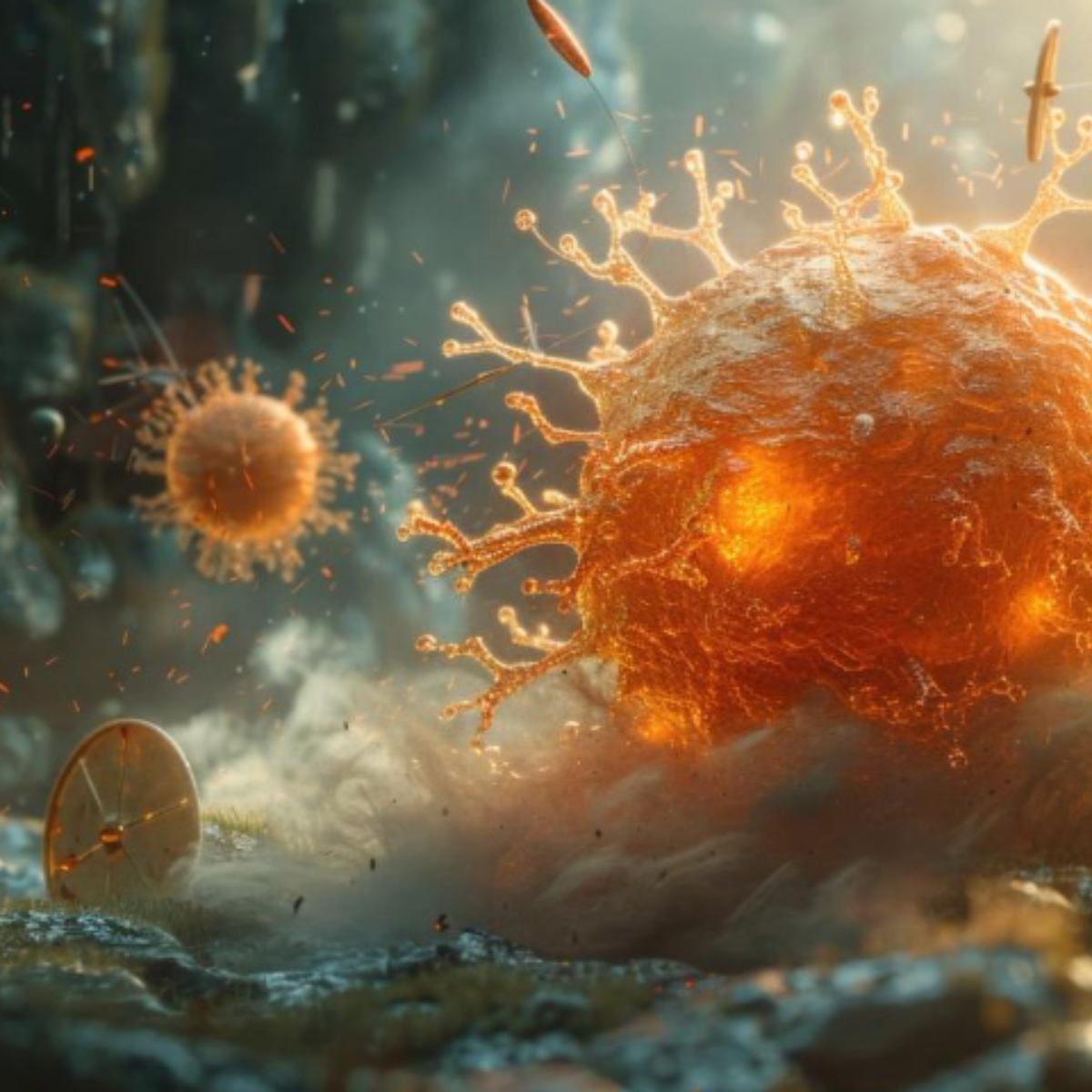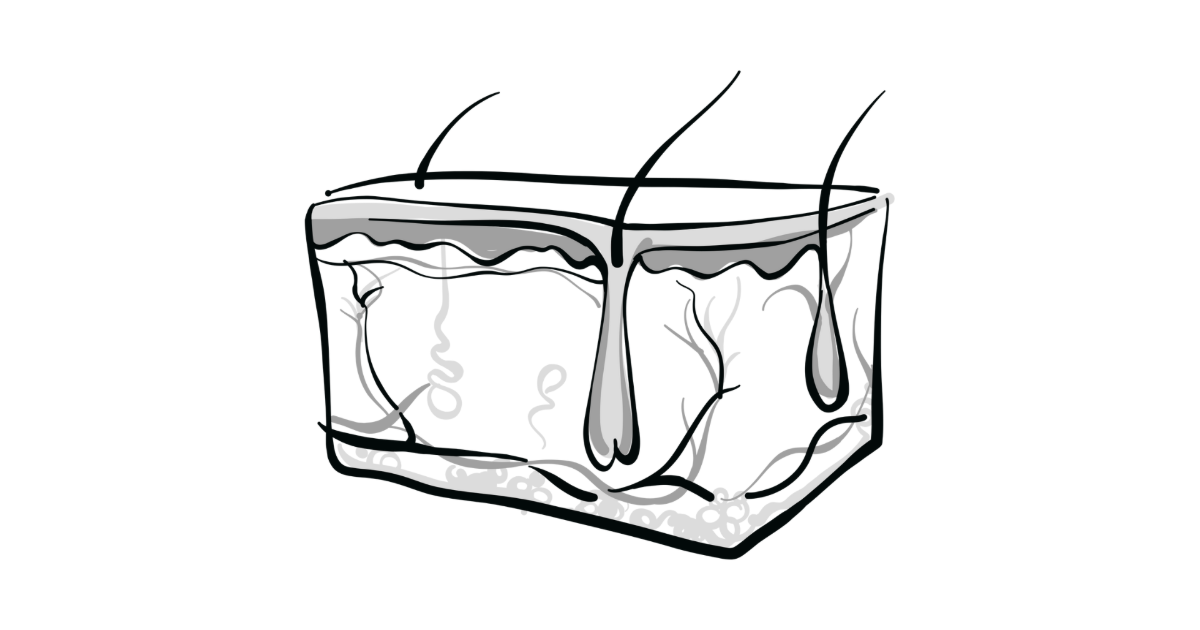Artistic depiction of a melanoma cell targeted by shields, illustrating the cellular fight against skin cancer, emphasizing research and cure: © Татьяна Креминская – stock.adobe.com

Long-term analysis of a phase 2 trial (NCT02519322) evaluating neoadjuvant relatlimab (Opdualag) and nivolumab (Opdivo) confirmed robust and durable survival benefits in patients with resectable melanoma. At a median follow-up of 47 months, 80% of patients remained event-free and 87% were alive 4 years from the start of neoadjuvant therapy. The study, published in the Journal of Clinical Oncology,1 also identified potent biomarker signatures that may guide future patient selection and combination strategies.
Investigators reported that recurrence-free survival (RFS) at 4 years was 95% for major pathologic response (MPR) vs 60% for those who did not (P =.015). Previously, investigators reported a 63% MPR rate in the first study.2
“These results reinforce the durable benefit of neoadjuvant immunotherapy in high-risk, resectable melanoma and strongly support the continued investigation of emerging regimens in this space,” the authors, led by Elizabeth M. Burton, PhD, MBA, executive director, Strategic Translational Research Initiative Development at The University of Texas MD Anderson Cancer Center in Houston, Texas, concluded.
Thirty patients received 480 mg of nivolumab and 160 mg of relatlimab intravenously once every 4 weeks for 2 cycles before surgery, followed by up to 10 doses after surgery, for a total of 12 doses. The original study end point was pathologic response but in this updated analysis, the end points were event-free survival, RFS, and overall survival (OS).
Patients were a median age of 60 years old (range, 35-79), most (63%) were male, 60% had clinical stage IIIB disease at diagnosis, and most (93%) had an ECOG performance status of 0. Sixty-seven percent underwent prior surgery and 3% had prior systemic surgery.
A central component of the updated analysis was a biomarker investigation using gene expression profiling on longitudinally collected tissue samples. Researchers analyzed baseline samples from 19 patients and found that those who achieved an MPR had significant upregulation of numerous immune-related pathways compared to non-responders. These included signatures for B cells, CD8+ T cells, cytotoxicity, interferon gamma, and PD-1.
Notably, the T-cell immunoreceptor with immunoglobulin and ITIM domain (TIGIT) signature demonstrated a perfect ability to predict MPR, with an area under the curve (AUC) of 1.0. A high TIGIT expression at baseline was associated with a 100% positive predictive value for achieving an MPR.
Conversely, the immune checkpoint molecule B7-H3 (CD276) was the only signature significantly elevated at baseline in non-responders. High B7-H3 expression was strongly predictive of resistance, with an AUC of 0.893.
The clinical impact of these biomarkers was striking. All patients with a high TIGIT or low B7-H3 signature at baseline remained event-free at 4 years. In contrast, patients with low TIGIT or high B7-H3 had a significantly worse median event-free survival of 15.0 months (95% CI, 1.6-not estimable), with only 29% remaining event-free at 4 years. When combined, patients with the favorable biomarker profile (high TIGIT/low B7-H3) had vastly superior outcomes compared to those with an unfavorable profile.
“We identified a novel association with less than MPR, elevated B7-H3, a potentially actionable target,” the authors noted, highlighting that B7-H3 is already the focus of investigational therapeutic agents. “These findings suggest B7-H3 as a potentially targetable strategy and a unique biomarker of resistance to anti–PD-1 and anti-LAG-3, warranting further investigation,” the authors concluded.
REFERENCES:1. Burton EM, Milton DR, Tetzlaff MT, et al. Long-Term Survival and Biomarker Analysis Evaluating Neoadjuvant Plus Adjuvant Relatlimab (anti-LAG3) and Nivolumab (anti-PD1) in Patients With Resectable Melanoma. J Clin Oncol. Published online July 10, 2025. doi:10.1200/JCO-25-004942. Amaria RN, Postow M, Burton EM, et al. Neoadjuvant relatlimab and nivolumab in resectable melanoma. Nature. 2022;611(7934):155-160. doi:10.1038/s41586-022-05368-8
